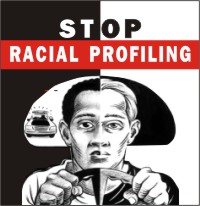The Good and Bad of Fraternties
A little while back I posted a blog post about fraternities and their problems, but I have done more research and interviewed a few people, and I have updates. I interviewed two people, one who is director of fraternity and sorority affairs at a college that I will not mention for anonymity reasons. The other was Jake Sisco, the assistant director of admission at Wellesley University, and was a member of Kappa Sigma fraternity at MSU. With my new information I am back with a second blog post explaining everything that I have learned since my first post.
In my first post I stated that fraternity brothers aren’t real brothers, and that fraternities should be shut down. I also stated that my neighbor was hazed, so it was pretty obvious that at that time that I had some bias against fraternities. Since then, I have put my biases to the side, and tried to look for some of the good aspects of greek life, rather than focusing on the bad things about fraternities. Of course, I will include bad things, because fraternities aren’t all good or bad.
In my first blog post I explained the reasons behind why I think fraternities are bad, what is bad about them, and why they should be shut down. I used evidence from Timothy Piazza death related to fraternity hazing that happened a year ago. Seems very well backed up right? Well all of the things that I said in that post were true, but the internet has a way of doing things where it filters all of the most popular things to pop up first, and the most popular things are usually bad things about fraternities, which casts a negative stereotype over fraternities. In this post I will be speaking the truth about fraternities to the best of my ability.
http://www.ttujournalism.net/classes/j4370/wp-content/uploads/sites/3/2015/12/HazingInUS.jpeg
Chart for hazing in the U.S. Shows how many people are hazed per year, deaths, and who realizes that they are being hazed when it is happening.
As I stated in my first blog post fraternities were created to get the rich kids away from the poor kids, that is true, but fraternities were created a while ago, and that has evolved, now fraternities welcome people based on how dedicated they are to greek life, and as both of my interviewees told me, hazing happens a lot, but most fraternities see initiation as a celebration of new members, rather than a test or a “haze”. In fact, Jake told me that the worst thing his fraternity ever did to initiate people was make them solve a puzzle in the dark, which is not very bad compared to the other things that have happened during an initiation to a fraternity.
Initiation to a fraternity
I asked Jake and the other person I interviewed to tell me what happens in order to prevent anything bad happening in a fraternity, and what is done as a punishment to the people in a fraternity. They told me that fraternities can be monitored, they can be dry fraternities, meaning that alcohol is not prohibited, and a few more things that you would expect. A way to stop bad things from happening again, was an “actions have consequences” approach, where depending on how bad something was, there would be punishments from “no parties for the rest of the year”, to expelliation from the fraternity or the school, or for things like the Timothy Piazza case that I talked about in my first post, there can be criminal charges against the other fraternity members. This shows to be careful when in a fraternity and to be careful when looking for a fraternity to join. From these two interviews I can take away that bad things happen because of fraternities, but fraternities are not all bad, as most of them unite people, and show brotherhood, my wise words would be to be careful with what kind of fraternity you are joining.
Click here for my annotated bibliography.




